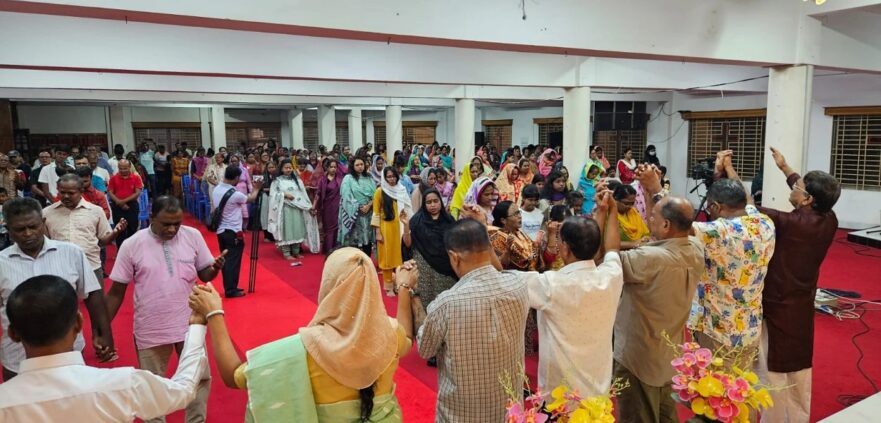September 30, 2024
In the face of planned protests in their country, and heightened risks of violence, how can churches respond?
In recent months, Bangladesh, Kenya, and Nigeria witnessed mass demonstrations. Growing up in Lebanon, I saw demonstrations, sometimes very large, on a regular basis. I have also seen some of my Christian friends in leadership roles struggle with how to respond.
I would like to suggest elements of a Christian response that I believe are centered on our values and biblical ethics.
First, we can speak into the immediate situation. International law protects the right to life in tandem with protecting the right to peaceful demonstration. Therefore, we need to call on demonstrators to keep demonstrations peaceful. And we need to call on authorities to ensure the protection of life and the protection of demonstrators. Authorities have an obligation under human rights law to use force only when necessary, and in a manner that is proportionate to the threat. Lethal force can be used only to protect life.
Second, Christian leaders can speak about the long-term situation and root causes of the popular discontent. They can appeal to authorities and call for reform, for policies that provide for the needs of the population, for transparency, and combatting corruption. Such appeals are founded in the biblical mandate to care for the poor, the needy, the widow, and the orphan. They are also founded on the responsibilities of authorities to respect the dignity and humanity of every man and woman they have authority over, because God made man in His Image.
My third point is more challenging, but also potentially more effective. Christian churches can seek to develop the expertise and knowledge and to pursue the requisite research so that they can do more than criticize. They can position themselves to make practical policy recommendations related to economic and political reforms within a country. This approach can often be carried out without directly confronting the government, but by coming alongside the government and proposing solutions.
A few years ago, I had the chance to meet Goodwill Shana, chair of the International Council of the World Evangelical Alliance and founder and senior pastor of Word of Life International Ministries in Zimbabwe. I was surprised and greatly encouraged to learn that Dr. Shana served as a commissioner on the Zimbabwe Anti-Corruption Commission and as the chair of Transparency International Zimbabwe. I asked Dr. Shana how he became a leader in the fight against corruption, and in an interview with me, he shared the following comments:
“(…) this corruption was there no matter what you did. You checked people into the hospital and there was no medicine. You asked what happened to the medicine? Somebody took the money. Or there are no beds or ambulances. One particular problem I discovered was that in one particular part of our city, Bulawayo, there was a very high rate of mortality of women who were pregnant and the only reason was that there was no ambulance. What happened to the ambulance? Some government official had taken the money for the ambulance and spent it on himself. The one question that kept coming up was as a good shepherd, what do you do for your sheep? These are your sheep. And so, I was given a challenge to engage with the problem. And in Zimbabwe the biggest problem is corruption. And then you have another problem; where is the church?”
When you see the socio-economic and governance challenges in your country that are leading to protests, where do you feel God calling you today?
If you are called to respond to these challenges, let us commit to a response that demonstrates love for our neighbor, and shows mercy and kindness, while at the same time attaining a level of professionalism and knowledge that is needed to tackle such complex challenges.
Featured image caption: Christians in Bangladesh pray for peace. Photo credit: Christianity International
This article is reprinted from AABYF Vuvuzela Newsletter, Africa.

